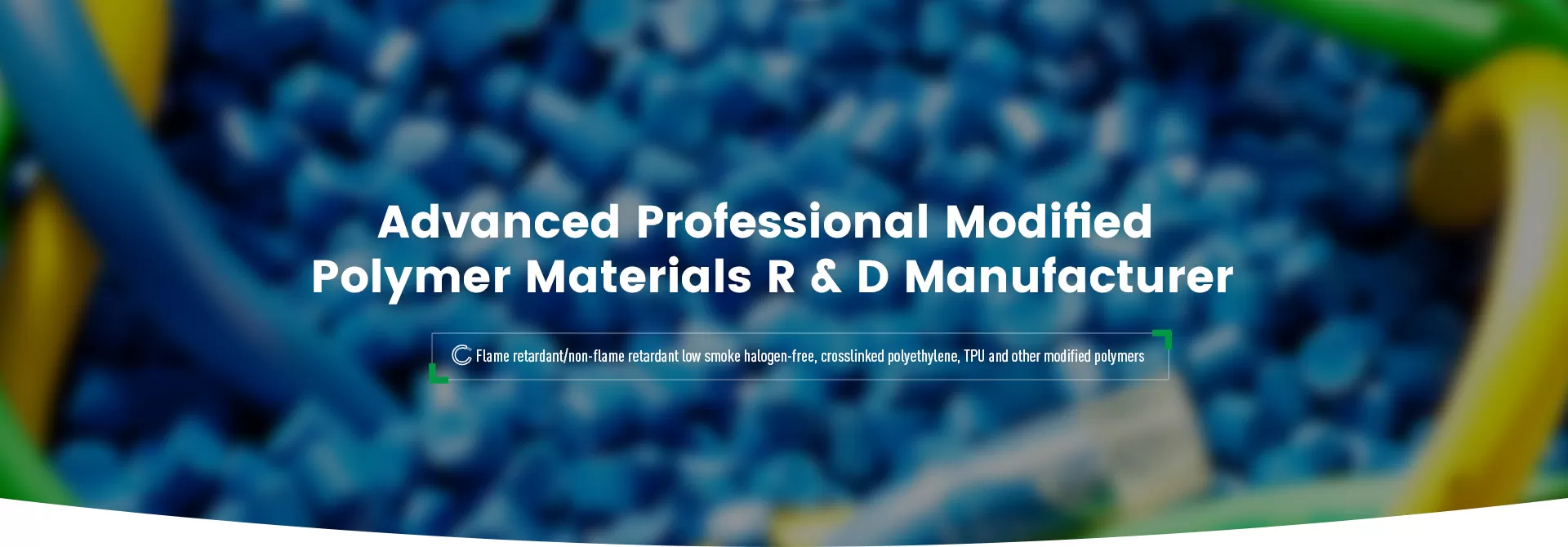
As global annual sales of new energy vehicles surpass 30 million units, EV charging stations—one of the critical infrastructures—are under increasing scrutiny. The durability and safety of their cables directly affect both user experience and grid stability. As the cable’s first line of defense, the sheath material must withstand extreme temperatures, mechanical stress, and chemical exposure.
The 105℃ UL-standard TPE cable jacket, with its comprehensive performance validated under the UL certification system, is steadily gaining traction in the EV charging cable sector.
Charging cables built to UL standards—particularly the EVE cable series (rated for 600V or 1000V)—must comply with UL 62, demanding a continuous operating temperature range from -40°C to 105℃ and passing rigorous tests:
Electrical performance: 90℃ long-term insulation resistance, dielectric strength testing.
Flame retardancy: UL1581 VW-1 vertical flame test.
Environmental resistance: Oil resistance, acid-alkali resistance, and UV aging resistance.
In real-world applications, EV charging cables face a variety of challenges:
Mechanical stress: Frequent dragging, bending, and crushing (e.g., Omega cables require >50,000 bending cycles).
Extreme climates: Continuous exposure to UV rays, humidity, and severe cold (down to -40℃ in northern regions).
Chemical corrosion: Contact with oil, acid rain, de-icing agents, and other fluids.

After 168 hours of heat aging at 135℃:
Tensile strength ≥10 MPa,Elongation at break ≥300%(Compliant with UL 62 standards)。
Compared to PVC jackets (typically rated for 90℃), TPE withstands sustained heating at 105℃, preventing softening and deformation during high-current fast charging.
Uses a phosphorus-nitrogen flame-retardant system to achieve UL94 V-0 / VW-1 classification,No release of toxic halogen gases during combustion.
Fully compliant with EU RoHS and REACH directives (validated in the Chanan EV cable case)
Passes -40°C cold bend tests with no cracking,Brittleness temperature down to -50℃,
Effectively solves the embrittlement issue commonly seen in PVC jackets in cold climates.
Enhanced oil resistance: Tensile strength variation ≤±30% after 168h immersion in oxalic acid / NaOH.
Hydrolysis resistance: Maintains full function after 2000 hours in 85℃ / 85% humidity (validated by patented formulation CN104962029A).
Elongation at break up to 580%, Minimum bending radius <5D (five times cable diameter), ideal for confined installation spaces.
“Memory rebound”effect reduces bulging from repeated pulling, preventing core displacement or breakage.
Density only 1.02 g/cm³ (approximately 30% lighter than PVC), lowering overall cable weight.
Compatible with direct extrusion using existing equipment,100% recyclable scrap material, supporting circular manufacturing.
| Features | TPE cable jacket | TPU cable jacket | PVC |
| Density (g/cm³) | 1.02±0.05 | 1.10~1.20 | 1.30~1.40 |
| Low-temperature toughness | No crack at -40℃ | -50℃ no crack | -15℃ hardening |
| Flame retardancy | VW-1 (halogen-free) | VW-1 (halogen-free) | VW-1 (halogen-containing) |
| Oil resistance (Δ strength) | ≤±30% | ≤±20% | ≥±50% cracking |
| Environmental protection | Halogen-free, recyclable | Halogen-free | Halogen-containing |
| Cost | Medium | High (+40%) | Low |
Portable charging devices (coiled cables): Rely on TPE's high resilience and anti-tangling properties.
DC fast charging cables (large cross-section up to 240mm²): Utilize TPE's stress-crack resistance to withstand pressure from liquid cooling systems.
Outdoor public charging stations: Benefit from UV and hydrolysis resistance to extend service life (validated by the Chanan case study).
Comprehensive certification: Must meet UL 62 + RoHS + REACH standards—none can be omitted.
Temperature rating: Prefer 105℃-rated grades over 90℃ to provide thermal margin for power surges.
Process compatibility: Melt flow index (MFI) must align with high-speed extrusion equipment requirements.
By balancing high performance and cost-efficiency, the 105°C UL-standard TPE cable jacket has become a driving force for innovation in EV charging cable applications. Its high-temperature resistance ensures fast-charging safety, halogen-free flame retardancy aligns with global environmental regulations, and its exceptional mechanical toughness helps reduce failure rates by over 30%.
With the rise of liquid-cooled ultra-fast charging systems, TPE's potential for lightweight and thin-wall designs (e.g., XLPO blend solutions from Ruiyada) will accelerate the next phase of industry evolution.
According to UL certification data, TPE penetration in UL-standard charging cable jacket reached 35% by 2025, and is projected to exceed 50% within the next three years.